Incubator program initiated by the R&D institute to bring a beta version of 0 -> 1 product to the market
2019.11.21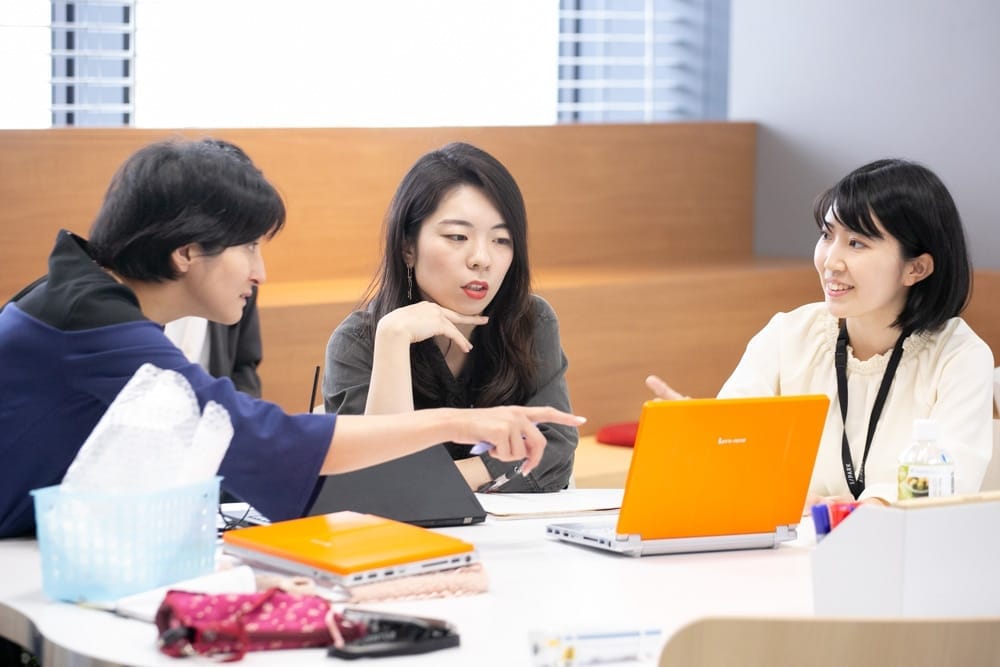
Shiseido's open innovation program "fibona" started in July 2019. One of its activities is the "speedy introduction of beta versions of products to the market." Utilizing services such as crowdfunding, the program aims to speedily introduce products that take advantage of technologies created through research to the market as beta versions.
As the first phase of this activity, "fibona with incubators program" was launched with Makuake Inc., that operates Makuake, “Support” pre-order service for new things and experiences. (Press Release [Japanese only])
The incubator program involves workshops over a period of about six months. Shiseido's R&D institute members' ideas will be refine in terms of commercialization and business models, with the aim of posting them on Makuake for crowdfunding.
As of writing this, November 2019, the incubator program has just turned the corner (It takes a little longer to be ready for commercialization), and the ideas has been refined. The outline of the product is now beginning to emerge. We asked the three researchers participating in the incubator program how they are responding to the program at this point.
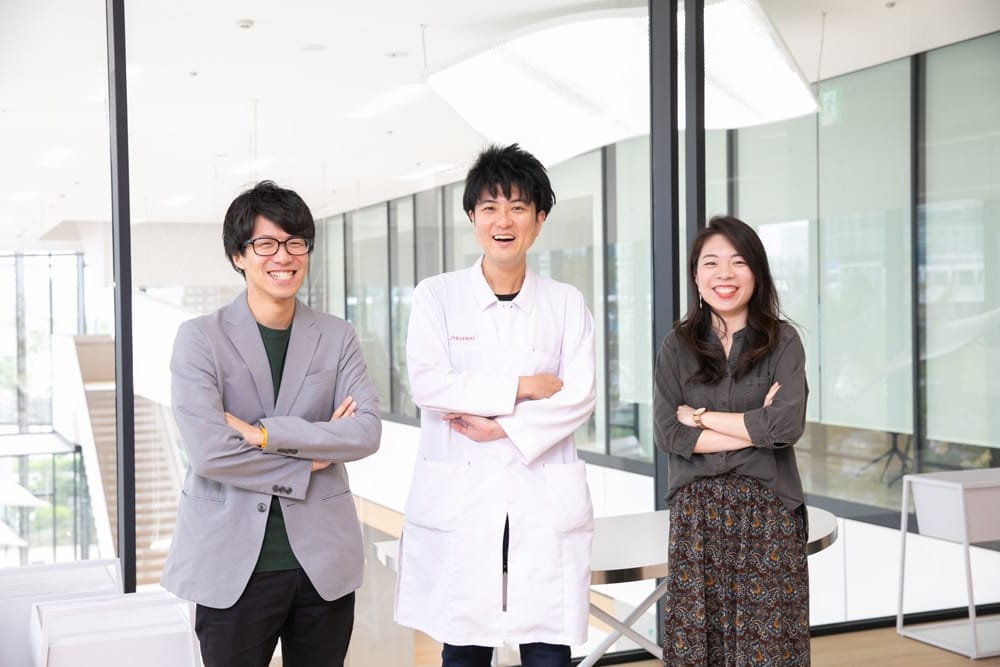
The program is halfway done. What are your impressions of the program?
Takahashi:
This incubator program is a 0-to-1 program, so to speak, to launch a product or service. While realizing that this is a difficult program, we are working on it while dreaming of what lies ahead after the launch.
Arai:
Even if we say "0-to-1," it does not mean that everything is freedom. Since this is a Shiseido program, it is difficult to create something, 1, by taking advantage of the knowledge that already exists in the company.
On the other hand, the knowledge we have now is already being used in some products, isn't it? If we can create new value from them, that would be an innovation in itself. I feel that the experience of looking at the same subject from a different point of view from the existing work is a positive point, as it provides an opportunity for my own growth.
Saheki:
There is also the aspect of making use of in-house knowledge but not going outside the company for good reason. It is difficult to think about how to output attractive products that can also be monetized. However, I belong to a department that focuses on basic research, so I don't usually talk much about business. I participate in the program because I think it is very interesting to talk about costs and profits, which I usually don't think about.
Takahashi:
It is difficult to seriously think about profit, isn't it? When putting out a product on Makuake, due to the nature of crowdfunding, a large number of customers will suddenly gather without any preparatory work. If that was the end of the project, it would still be a business, but as a company, we need to make it a permanent business. I honestly feel that it is a very high hurdle to not only develop the product but to also think about how to turn it into a business in the future, and it is a challenging project.
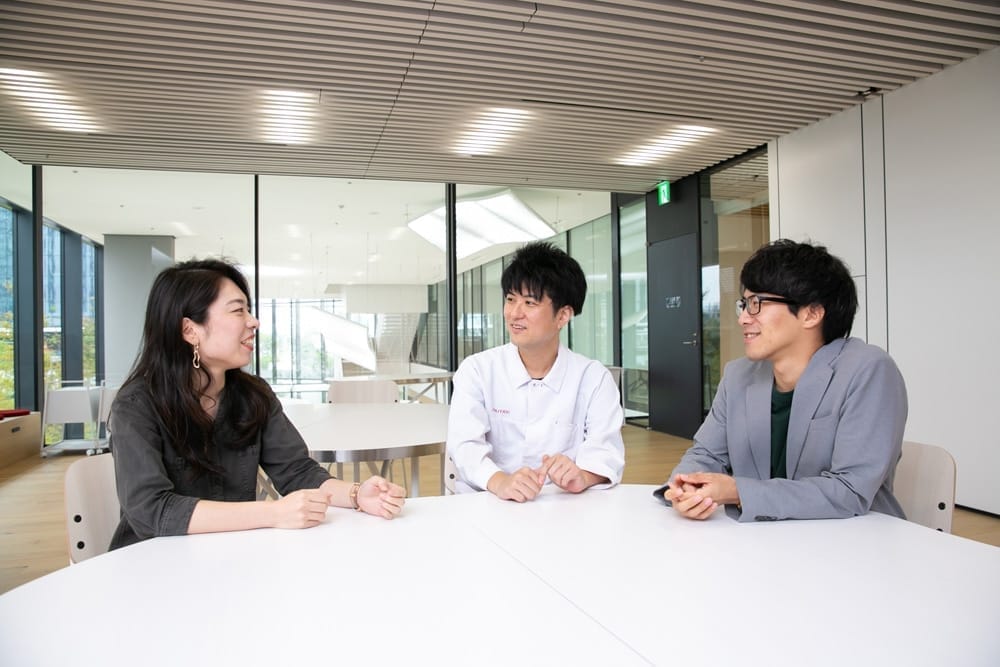
In the workshop, each team of 3-4 people refines one idea. How do you decide on an idea and improve it?
Takahashi:
My team was unanimous when we first talked about what we wanted to do in the first place, so we refined an idea based on that.
Saheki:
The core idea of our team itself has not changed, but we are moving forward little by little, fluctuating in terms of functions and methods of implementation.
We are the only team that has all female members. That's why we come up with a lot of ideas. With Shiseido products, I think the main target demographic is often women, so I think it's good to create what we want, and that's how we proceed.
Are there any difficulties in managing a team?
Arai:
The schedule. The program is moving so fast that we are pressed for time, and we don’t have time to be afraid of losing relationships due to conflicts. So, I feel that small conflicts that occur when something such as "something doesn't feel right" is said happen more often than in my daily work. But even if there are conflicts, I feel that they are positive actions because they are for the sake of moving forward.
Takahashi:
In our team, we agreed at the beginning to have a relationship in which we can say anything to each other. So, we often say things like "Maybe we should do this a little better," but we get along well. The initial drinking sessions have been effective, and we have become a fun and lively team.
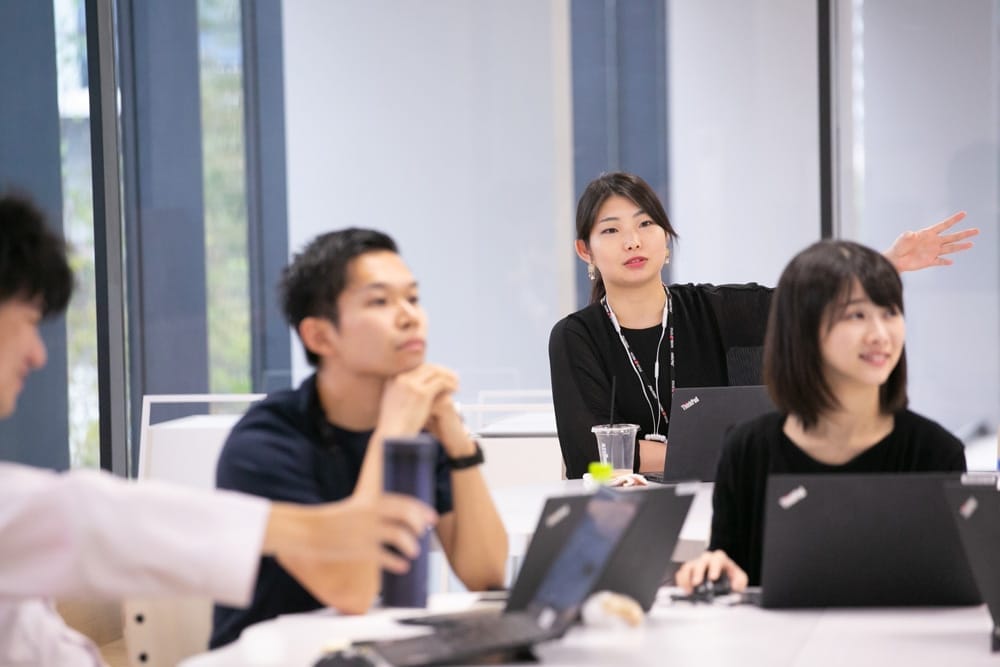
Saheki:
At first, We were reading the atmosphere and would say “I think other people’s opinions are a good idea”, but the project really didn't give us enough time. I felt like it’s waste of time to have a bland discussion. We came up with a lot of ideas, but it was more efficient to say "I don't want to buy it" and then cut them off as we went along, which moved the discussion forward. Consent is a horizontal development concept. But a business has to proceed vertically. Now that we have passed the halfway point of the program, I think we are entering such an environment.
Do you have any thoughts on what lies ahead for the incubator program?
Takahashi:
The idea that our team is working on right now, if you look at the marketing and research results in a straightforward manner, you would conclude that it is a difficult market. Therefore, we are trying to figure out how to make it acceptable to the market. Our dream is to overcome the difficulties and make it into a business that will lead to beauty as a total solution.
Arai:
Of course, first of all, I would like to give shape to the ideas we have now. On the other hand, I would also like to take the ideas that come up during the process back to my own work and dig deeper. I would like to make things go from 0-to-1 again in my own department.
Saheki:
As is often the case with basic research researchers like me, there are many people who have never seen their own research published after joining a company. If you have joined a manufacturer, you want to say to your family and friends, "This is the product I was involved in," don't you? 0-to-1 means "creating a product that utilizes the results of basic research," and that is the source of our energy. So I definitely want to achieve the result of a product.
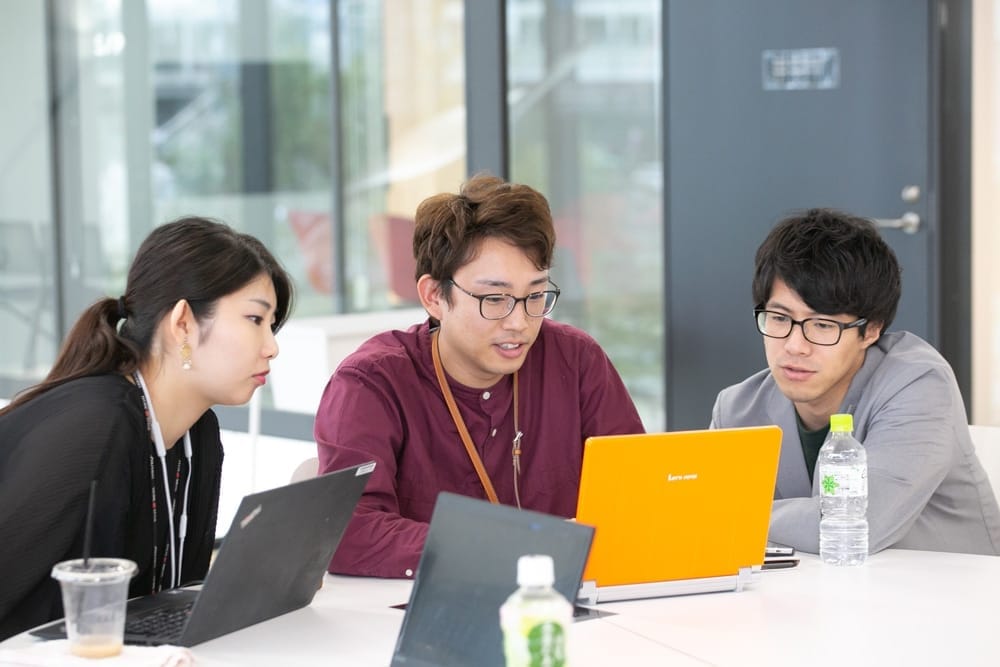
The "fibona with incubators program" is a program in which the R&D institute, a department not usually involved in business development, launches a product from 0-to-1. Although the program has only just begun, the fibona operation team feels that it is making steady progress. If things continue to go smoothly, the day should come when a beta version of the product can be introduced to the market through crowdfunding and other means. Please wait a little longer for the 0-to-1 product from the Shiseido Global Innovation Center.
Project

Speedy trial
Activity